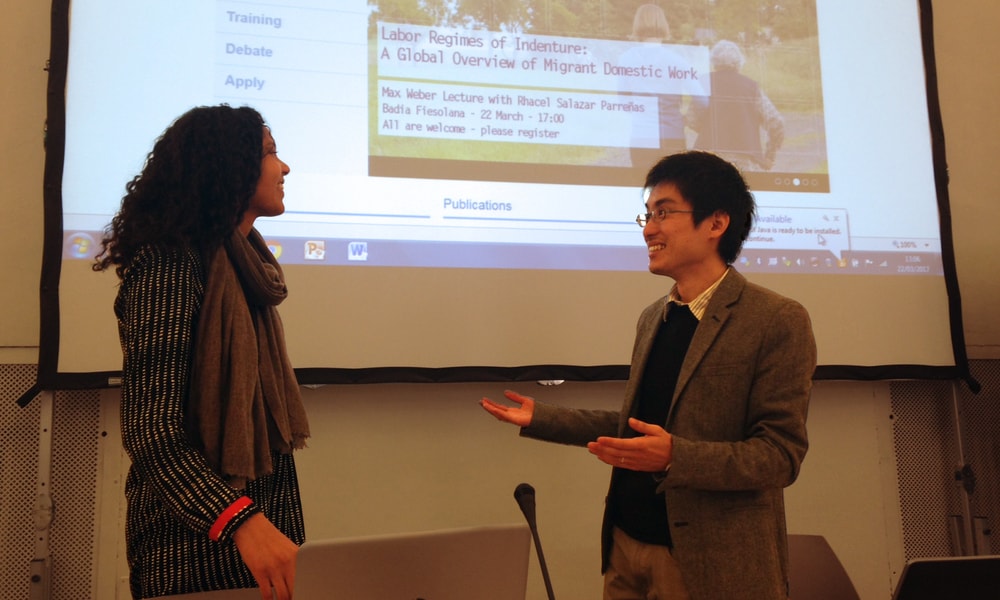Making Research Design Relevant
M.A. in Political Science, European Union Policy Studies
My general experience in teaching research methodology in political science over the past four years is that students often find the topic abstract, irrelevant, and boring. But, this is unfortunate! Methodology is the foundation for solid research, arguments, and – ultimately – decision-making both within and outside the classroom. While there are many important aspects of methodology, I focus on causal inference as it is one of the essential methodological elements in evaluating policies.
We often make causal claims in casual ways. One non-political example would be with football. Let’s assume that football fans conclude that a substitution in the second half of the game caused their team to lose. This is a causal claim: the substitution is a cause, and the loss is an effect. However, it is actually not easy to assess if the claim is correct. Using causal inference, we would also use counter-factuals to make our claims more accurate. In the above example, the causal effect of the substitution is not a clear argument as it is. The real cause of the team’s loss can only be established if we know the outcomes of all possible scenarios of the game itself; whether or not the substitution happened.
Because we cannot know what would have happened in that specific game if the coach decided to not make a substitution, it is impossible to know the alternative outcome. Thus, causal inference is inherently difficult and challenging. We have to find a different game where every factor that could affect the outcome of the game is held relatively constant except the coach’s decision to make a substitution. Only then would we be able to observe the differences between the two outcomes and establish that it was in fact the substitution that created the final score of the game. In everyday situations, we routinely hear casual claims that purport to be causal claims—they are not based on the careful consideration of other possible scenarios, or counter-factuals.
Now more than ever, causal inference is important in the political sphere. Politics is a field laden with both causal and casual claims. Political leaders and “ordinary citizens” both favor specific policies and platforms because they believe they will effect change in a particular, desired way. A politician might argue for lowering corporate taxes, hoping it will invigorate corporate activities and create a booming domestic economy. The main reasoning being behind this argument is a causal one: if corporate taxes were to be reduced, corporations would become more active, and domestic economy would be stimulated, then people might believe that the tax cut caused the economy to recover and thereby decide to support this politician in the next election, too.
As in the case of the football game example, though, it is not so easy to validate this causal effect. In reality, maybe corporations were already on the path towards recovery from the economic recession and became more active, making the tax cut’s effects negligible. It could have been not the tax cut, but some external factors, such as an increase in trade, that helped companies become more active and helped the economy to recover. As in the case of the football example, we need to find some other case which is very similar to the case in which we want to detect the causal effect. If there was another country which had similar economic, social, political, and cultural situations but did not reduce corporate tax, we could compare the level of economic recovery between these two countries. Only if we found that the latter country did not experience as much economic recovery as the former country would we be able to claim the causal effect of corporate tax reduction on economic growth.
Political actors make plenty of causal claims, and policy decisions are usually taken in accord with them. Policies are implemented to solve specific problems. However, without understanding the causes of the problems properly, we cannot make adequate policies to solve them. If we want to be reliable decision-makers, we have to consider carefully whether policies will have the desired causal effects or not, based on valid comparison with other cases. In this sense, it is important for us to find similar situations to where we are now, by looking at our own history and other countries’ histories. We could compare what happened in these similar situations with and without the implementation of a specific policy whose potential impact we would like to assess on our own society.
The ability of citizens to make adequate causal inferences is essential for well-informed democratic politics, as citizens elect decision-makers directly or indirectly. EU countries these days are often divided over the plausibility of specific policies, such as immigration, security, and European integration. If citizens in these countries do not possess an ability to assess the potential causal effect of specific directions of possible policies, they may mistakenly support something that is an implausible, and potentially destructive, policy. In this sense, the continuous education of generations of people about research methodology in general and causal inference in particular has a critical importance for good governance. Methodology is relevant to our life.
